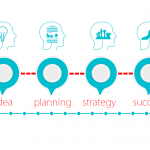
As a business owner or manager, you are always looking for ways to improve your bottom line. One way to accomplish this is by investing in your team through business leadership coaching. It’s not just about making them better, it’s about unlocking their potential and taking your company to greater heights.
Business leadership coaching is all about helping your team to become better leaders, to learn how to communicate more effectively, and to develop better decision-making skills. This coaching can be provided through one-on-one sessions with a professional coach or through group workshops and seminars.
The benefits of business leadership coaching are numerous. For example, coaching can help your team to:
- Develop new skills and techniques for managing projects and people
- Learn to communicate more effectively, both verbally and in writing
- Improve decision-making skills and create a more collaborative work environment
- Increase their self-confidence and motivation to succeed
- Achieve their goals and objectives more efficiently and effectively
Coaching can be customized to meet the unique needs of your team. Perhaps you have a manager who struggles with delegation, or a team member who needs help with time management. Or maybe you simply want to provide training to all of your team members to help them grow and succeed in their roles. Whatever your needs, business leadership coaching can provide you with the tools and resources you need to achieve success.
When you invest in business leadership coaching for your team, you’re not just investing in their skills and abilities. You’re also investing in your company as a whole. By helping your team to become better leaders, you can create a more cohesive and productive work environment, which can lead to improved employee morale and increased profits.
To maximize the benefits of business leadership coaching, it’s important to choose the right coach or training program. Look for a coach with experience and a proven track record of success. You should also look for a coach who takes a personalized approach to coaching, tailoring their services to meet the specific needs of your team.
In addition to choosing the right coach, it’s important to set clear goals and expectations for your coaching program. Decide what skills and abilities you want your team to develop, and communicate your expectations clearly to your coach and your team.
Finally, be patient and persistent. Like any new skill or technique, it takes time and practice to master the art of leadership. Encourage your team to be patient and persistent in their efforts, and provide ongoing support and feedback to help them stay on track.
Business leadership coaching can be a powerful tool for unlocking the potential of your team and taking your company to new heights. By investing in your team and helping them to become better leaders and communicators, you can create a more cohesive and productive work environment, which can lead to improved employee morale and increased profits. So why wait? Start exploring the benefits of business leadership coaching today.



